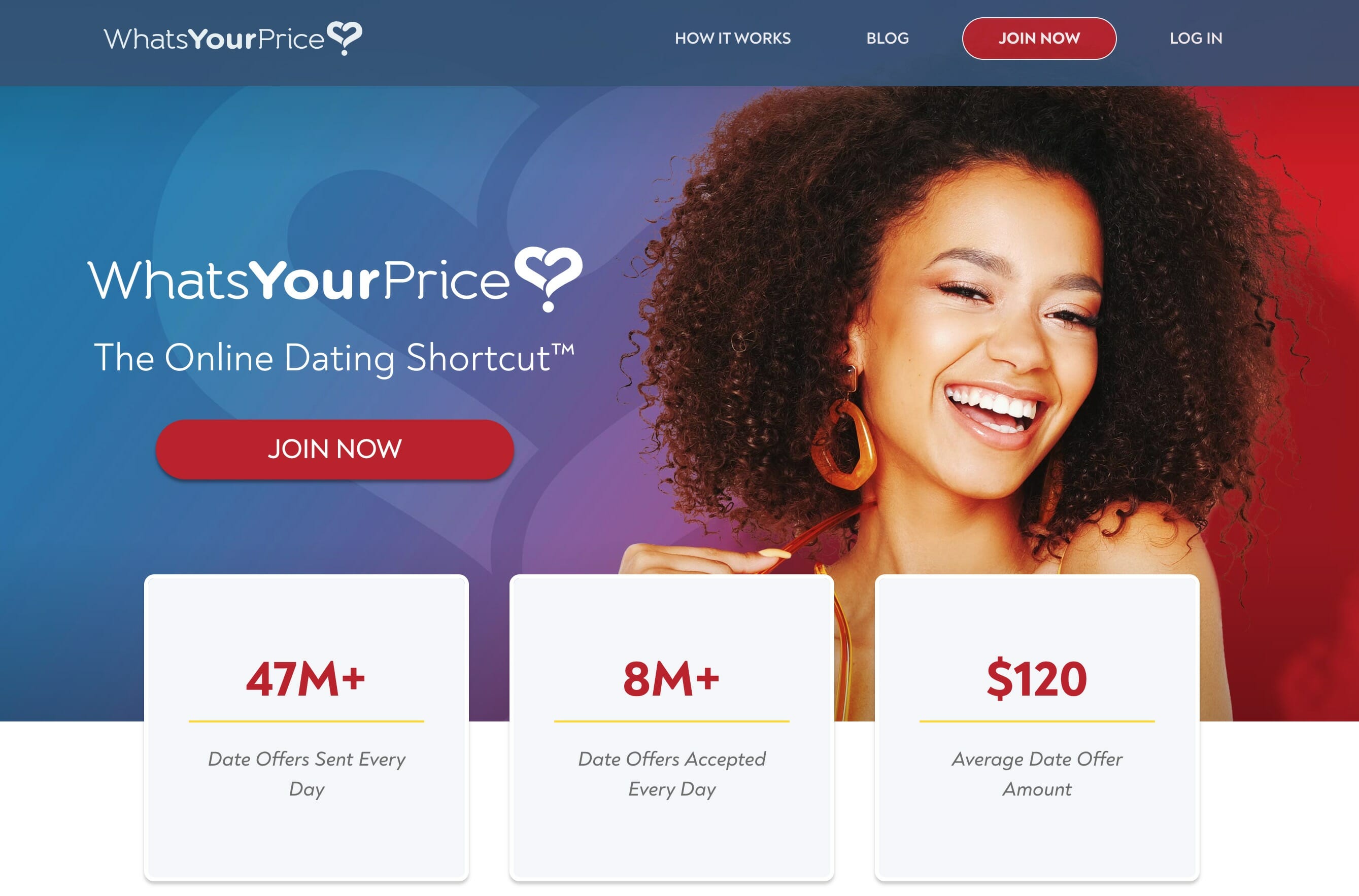What's Your Price? Unlocking The Value Of Personal Worth In Today’s World
Let’s talk about something real here folks. Have you ever asked yourself, “What’s my price?” It’s a question that hits deep, whether you’re negotiating a business deal, figuring out your career path, or even navigating personal relationships. But here’s the thing—knowing your worth isn’t just about money. It’s about understanding what truly matters to you and setting boundaries that reflect your value.
In a world where everyone’s hustling for the next big opportunity, it’s easy to lose sight of what really counts. But hold up—what if I told you that defining your price isn’t just about dollars and cents? It’s about clarity, confidence, and knowing exactly what you bring to the table. Whether you’re an entrepreneur, a freelancer, or someone looking to level up in life, understanding your value is the game-changer you need.
This isn’t just another article throwing buzzwords at you. We’re diving deep into the concept of personal worth, unpacking the factors that shape it, and giving you actionable insights to set your own price. So grab your favorite drink, get comfy, and let’s figure this out together.
- Mangabat The Ultimate Guide To Understanding And Exploring Its Wonders
- Manga4life Your Ultimate Destination For Manga Enthusiasts
What Does "What's Your Price" Really Mean?
When people throw around the phrase “What’s your price?”, they’re often talking about how much it takes to get someone to do something. But there’s so much more to it than that. At its core, this question is about understanding what motivates you, what you’re willing to compromise on, and where you draw the line.
For some, it’s about money—how much cash it takes to make a deal worth it. For others, it’s about time, energy, or even emotional investment. The truth is, your price isn’t just one number—it’s a complex mix of factors that define what you consider valuable.
Breaking Down the Concept of Personal Worth
- Money isn’t everything, but it’s part of the equation.
- Your time and energy are finite resources—treat them like gold.
- Emotional well-being plays a huge role in setting your boundaries.
Think about it—have you ever said yes to something because you felt pressured, even though deep down you knew it wasn’t worth it? That’s what happens when you don’t know your price. But once you figure it out, you’ll start saying no to the things that don’t serve you and yes to the opportunities that align with your values.
- Los Movies Your Ultimate Guide To The World Of Los Angeles Cinema
- Steam Unlocked The Ultimate Guide To Unlocking Hidden Gaming Potentials
Why Knowing Your Price Matters
In today’s fast-paced world, knowing your worth can be the difference between thriving and just surviving. When you have a clear understanding of what you’re worth, you’re better equipped to make decisions that align with your goals and priorities. Whether you’re negotiating a salary, setting rates for your services, or deciding whether to take on a new project, your price becomes your anchor.
Here’s the kicker—when you know your price, people take you more seriously. They see that you’re confident in your abilities and that you value yourself enough to set boundaries. And let’s be real, who doesn’t want to work with someone who knows what they’re worth?
The Impact of Knowing Your Worth on Your Career
Let’s break it down—when you know your price, you’re less likely to undersell yourself. You’ll stop accepting gigs that don’t pay you fairly, and you’ll start attracting clients or employers who respect your skills and experience. It’s a win-win situation.
Factors That Influence Your Price
Your price isn’t just a random number—it’s shaped by a variety of factors. From your skills and experience to your personal values and life circumstances, everything plays a role in determining what you consider worth your time and effort.
Skills and Expertise
Let’s face it—if you’ve spent years honing your craft, you deserve to be compensated accordingly. Whether you’re a graphic designer, a writer, or a software developer, your expertise is your superpower. Don’t sell yourself short just because you’re afraid of asking for what you’re worth.
Experience and Reputation
Experience matters, folks. If you’ve been in the game for a while and have a solid track record of delivering results, that’s worth something. Clients and employers are willing to pay a premium for someone who can get the job done right the first time.
Personal Values
But here’s the thing—your price isn’t just about what you can do. It’s also about who you are and what you stand for. If a project or opportunity goes against your values, no amount of money should make you compromise. Your integrity is priceless.
Setting Your Price: Where to Start
Figuring out your price isn’t as simple as pulling a number out of thin air. It requires some serious self-reflection and research. Start by asking yourself these questions:
- What are my skills and strengths?
- What’s the going rate for similar services in my industry?
- What non-monetary factors matter to me (e.g., work-life balance, creative freedom)?
Once you’ve answered these questions, you’ll have a clearer picture of what you should charge. And remember, your price isn’t set in stone—it can (and should) evolve as you grow and gain more experience.
Common Mistakes People Make When Setting Their Price
Let’s be honest—setting your price isn’t always easy. A lot of people make mistakes along the way, and it costs them in the long run. Here are a few common pitfalls to avoid:
- Undervaluing yourself because you’re afraid of rejection.
- Comparing yourself to others instead of focusing on your unique value.
- Not adjusting your price as your skills and experience improve.
Don’t fall into these traps, folks. Your worth isn’t determined by what others are charging—it’s determined by what you bring to the table.
How to Negotiate Your Price with Confidence
Negotiating your price can be intimidating, but it doesn’t have to be. The key is to approach it with confidence and clarity. Here are a few tips to help you negotiate like a pro:
- Do your research—know the market rate for similar services.
- Focus on the value you bring, not just the hours you’ll work.
- Be willing to walk away if the deal doesn’t align with your worth.
Remember, negotiation isn’t about winning or losing—it’s about finding a solution that works for both parties. When you approach it from that mindset, it becomes a lot less scary.
The Role of Emotional Intelligence in Setting Your Price
Emotional intelligence plays a big role in how you set and negotiate your price. Being aware of your emotions and the emotions of others can help you navigate tricky situations with grace and confidence. Here’s how:
- Recognize when you’re feeling undervalued and address it head-on.
- Empathize with the other party’s perspective, but don’t let it cloud your judgment.
- Stay calm and composed, even when things get heated.
Emotional intelligence isn’t just a buzzword—it’s a skill that can make all the difference in how you approach pricing and negotiation.
Case Studies: Real-Life Examples of Setting Your Price
To give you a better idea of how this works in practice, let’s look at a few real-life examples:
Example 1: The Freelance Writer
Sarah is a freelance writer who used to charge $25 per article. But after doing some research and reflecting on her skills, she realized she was undervaluing herself. She raised her rates to $50 per article and started attracting higher-quality clients who appreciated her work.
Example 2: The Small Business Owner
John owns a small graphic design studio. He used to offer discounts to every client who asked for one, but it was killing his bottom line. After setting a clear pricing structure and sticking to it, his business became more profitable and sustainable.
These examples show that setting your price isn’t just about the numbers—it’s about strategy and confidence.
The Future of Personal Worth: Trends to Watch
As we move further into the 21st century, the concept of personal worth is evolving. Here are a few trends to keep an eye on:
- The rise of remote work is giving people more flexibility to set their own prices.
- Skill-based economies are rewarding specialists who can deliver unique value.
- Social media platforms are creating new opportunities for monetizing personal brands.
Stay ahead of the curve by keeping up with these trends and adapting your approach accordingly.
Final Thoughts: Take Action Today
So there you have it, folks—a deep dive into the world of personal worth and setting your price. Remember, knowing your value isn’t just about money—it’s about living a life that aligns with your goals and priorities.
Here’s your call to action—take some time today to reflect on your worth. Write down your skills, values, and priorities, and start setting boundaries that reflect your true price. And don’t forget to share this article with someone who could benefit from it!
Table of Contents
- What Does "What's Your Price" Really Mean?
- Why Knowing Your Price Matters
- Factors That Influence Your Price
- Setting Your Price: Where to Start
- Common Mistakes People Make When Setting Their Price
- How to Negotiate Your Price with Confidence
- The Role of Emotional Intelligence in Setting Your Price
- Case Studies: Real-Life Examples of Setting Your Price
- The Future of Personal Worth: Trends to Watch
- Final Thoughts: Take Action Today
- Harimanga The Underrated Gem Of Japanese Culture You Need To Explore Now
- Manwha18 The Ultimate Guide To Exploring The World Of Adult Manwha

What's Your Price Review March 2025 Frauds or Legit Dates? DatingScout

WhatsYourPrice Review Rating, Prices, and Features

WhatsYourPrice Review (2024) Is It The Best Dating Site?